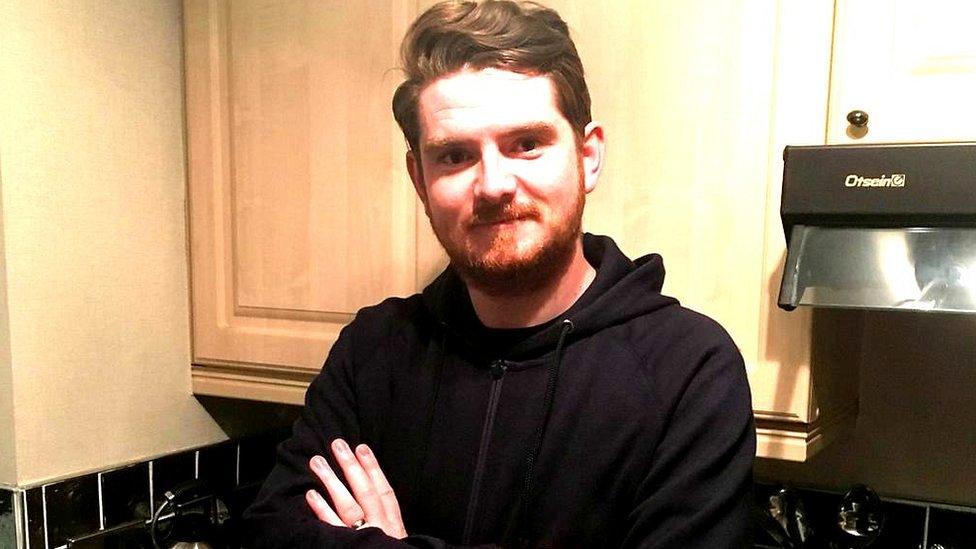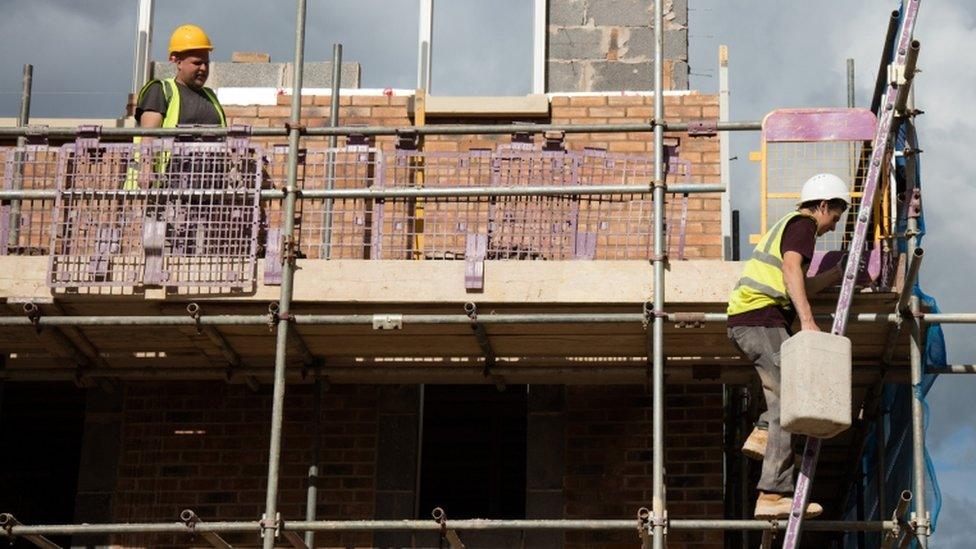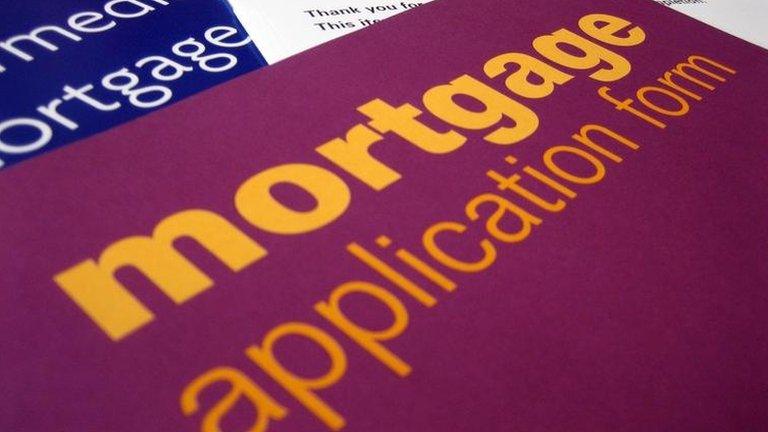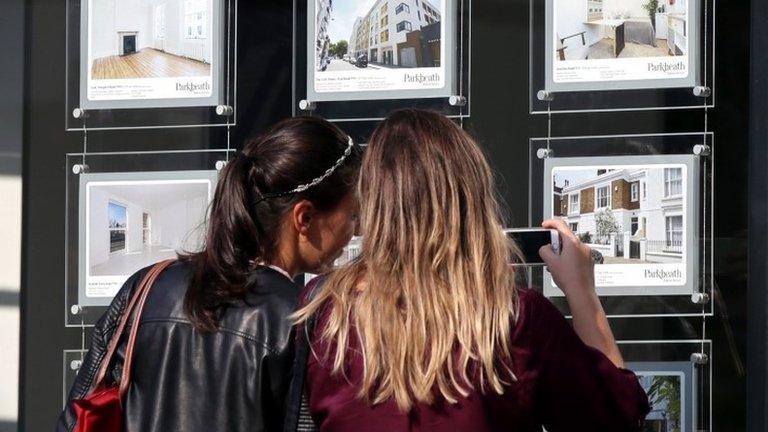'Our family's housing market generation gap'
- Published

How did we go so wrong as a nation that something the baby boomer generation took for granted - being able to buy a decent-sized family home - now appears out of reach for so many of their children?
That's the question I was trying to answer in Liverpool this week as part of the Today programme's series of reports on big election issues.
Housing is one of them, for obvious reasons: the gap between the number of new homes needed in England and those available is estimated at 100,000 a year.
While our politicians are quick to acknowledge the problem, it's far less clear if the solutions they propose will deliver change on the required scale.
In the meantime, the experience of 33-year-old Michael Sergison tells a bigger story.
At first glance he appears to have everything going for him; he and his new wife both have stable jobs - his in a Liverpool lettings agency, hers in a local hospital.
But for the last few years, they've been living with his parents, trying to save enough for a deposit on a house.

Recently married Michael Sergison is struggling to find an affordable house to buy in Merseyside
After they got married last month, that situation no longer felt right. "We wanted to move out. Not straight away, but as a married couple we feel as if we should be on our own, rather than with my mum and dad."
Having spent a lot of their savings on their wedding in Las Vegas last month, the only option was to rent.
The day I met Michael he was in the process of moving into a one-bedroom flat, with his father, also Michael Sergison, helping him out.
Michael Senior is quick to reflect on the contrast between his son's situation and what he could do at the same age: he and his wife paid £10,500 for their first home, a three-bedroom semi, in 1978.
The home that Michael Junior and his wife Francine dream of buying in Liverpool is upwards of £200,000: on a combined salary of £40,000 per annum, they could be years away from it.
For now, they're out of his parents' home and into one that belongs to someone else - his landlady Sue Earle, whose experience of the housing market also tells a bigger story.
She is a buy-to-let investor and sees the flat as a way to safeguard her future.
"I own two properties with my brother, which we purchased just to rent out.
"We both have successful careers, but we felt we needed to make sure that we have additional funds when we retire."
She hopes the rental income, of about £530 per month, will pay off the mortgage within ten years. After that, she could continue to let the flat out, or sell it at a profit.
Sue says she knows what it's like to have to save for a deposit, and worked hard to build up the funds that enabled her three mortgages.
For Michael, it's all about that first step on the housing ladder, for which his work at the lettings agency is not only crucial to his earnings, but also a valuable insight into the property market.

The Council of Mortgage Lenders says that the UK's housing market is in "neutral gear"
His manager at Belvoir Sales & Lettings, Adam Rastall, thinks the government should look at particular points where the market seizes up.
"I would focus more on the OAPs and the baby boomers and look for appropriate and suitable housing for them in the future.
"If we can help the older generation find suitable accommodation and give them incentives to move, then that would free up some good-quality housing for the younger generation."
I thought immediately of the older Michael Sergison, who has just retired from his work as a pipe-fitter and is living with his wife in a four-bedroom house. But downsizing? Not a chance.
"It's not our fault. When you get to a certain age you think 'why should I?' he explained to me.
"Whatever incentive they offered me, it just wouldn't work. I'm quite happy where I am."
Not surprisingly, Michael Senior wants to enjoy the house - and garden - that is the fruit of his own working life.
He looks around his son's one-bedroom flat and struggles to imagine it as home. "I couldn't live in this. I'd go stir crazy," he says.
But he knows this is the reality for many thousands of younger people. As far as the younger Michael is concerned, he's looking to the future, satisfied to be making the right start to married life. "I'm happy that we've got a place to call our own. It's not our house or our flat, but we'll make it our home."
- Published27 April 2017

- Published20 April 2017

- Published7 February 2017

- Published9 July 2020
